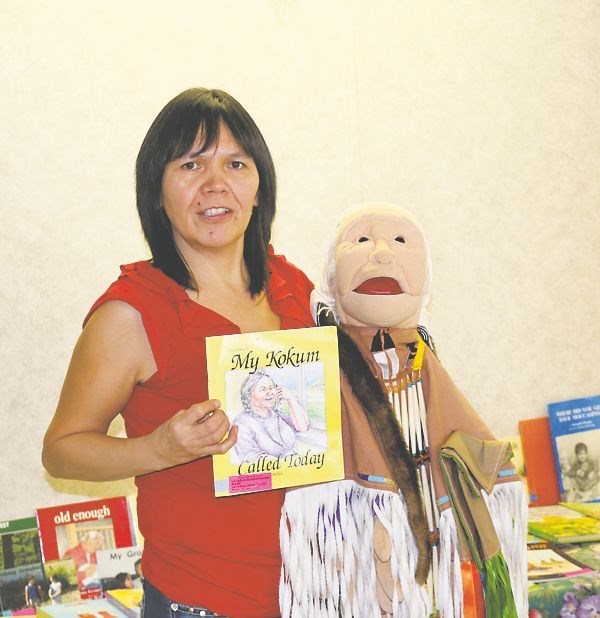The Lac La Biche Aboriginal Head Start program is starting a new book club to encourage childhood literacy — and they hope focusing on aboriginal authors will drive interest in the program.
The Lac La Biche Aboriginal Head Start program is starting a new book club to encourage childhood literacy - and they hope focusing on aboriginal authors will drive interest in the program.
The book club, designed for children under five years old and their parents, will meet every two weeks. Each session includes a group read-along of an age-appropriate book, followed by a craft or activity referencing some of the book’ s themes.
Charlotte Cardinal, community home liaison for the Head Start program and organizer of the book club, said she learned about the idea from a similar literacy program in Edmonton - but she’ s putting a new local, aboriginal angle on it.
Rather than choosing the standard books in the curriculum passed on from the Edmonton agency, she decided to kick off their first meeting by reading My Kokum Called Today, a book set in Canada about a young aboriginal girl receiving a phone call from her grandmother. In the book, themes about sharing aboriginal traditions between generations are explored through an easy-reading, illustrated story.
“We’ ll extend it to many other things,” said Cardinal. “As a child, what parents remember most about their grandparents.”
For an activity, parents are encouraged to help the children write a letter or draw a picture to send to their own kokum, Cardinal explained.
“I chose that book because they could relate to it,” said Cardinal.
Lac La Biche’ s Aboriginal Head Start is one of many such agencies across the province, publicly funded through federal and provincial contributions. The goal of the group is to encourage childhood literacy and school readiness through community-based activities.
Cardinal said culturally relevant programs to encourage literacy are especially important in the Lac La Biche area, where childhood literacy levels have historically been low.
“I know research says a lot of our low-income families, their literacy skills are very low,” said Cardinal. “I’ m a low-income person too, and I struggled in reading at first. If it wasn’ t for my mom, who was a good role model - always reading and telling me ‘these books can take you places’ - I wouldn’ t have improved.”
“I want to show our parents books are very important. They can make your imagination run wild, and we need to remember how to use our imagination again, we’ re losing it.”
Head Start is also considering starting a program to help teach science, and - in response to strong demand from parents - they hope to soon offer sessions for children to make aboriginal crafts, like dream catchers and moccasins.
Cardinal hopes to invite some of the many talented local aboriginal artists to lead craft sessions. “We have people out there in our community who are really talented,” she said. “And I’ m hoping to use them, because I’ m very proud to be aboriginal myself, and I want to show off our culture in many ways as I can.”
The first book club is taking place on Feb. 6 at 11:30 a.m. in the local Aboriginal Head Start office, behind the old Dr. Swift School building.
